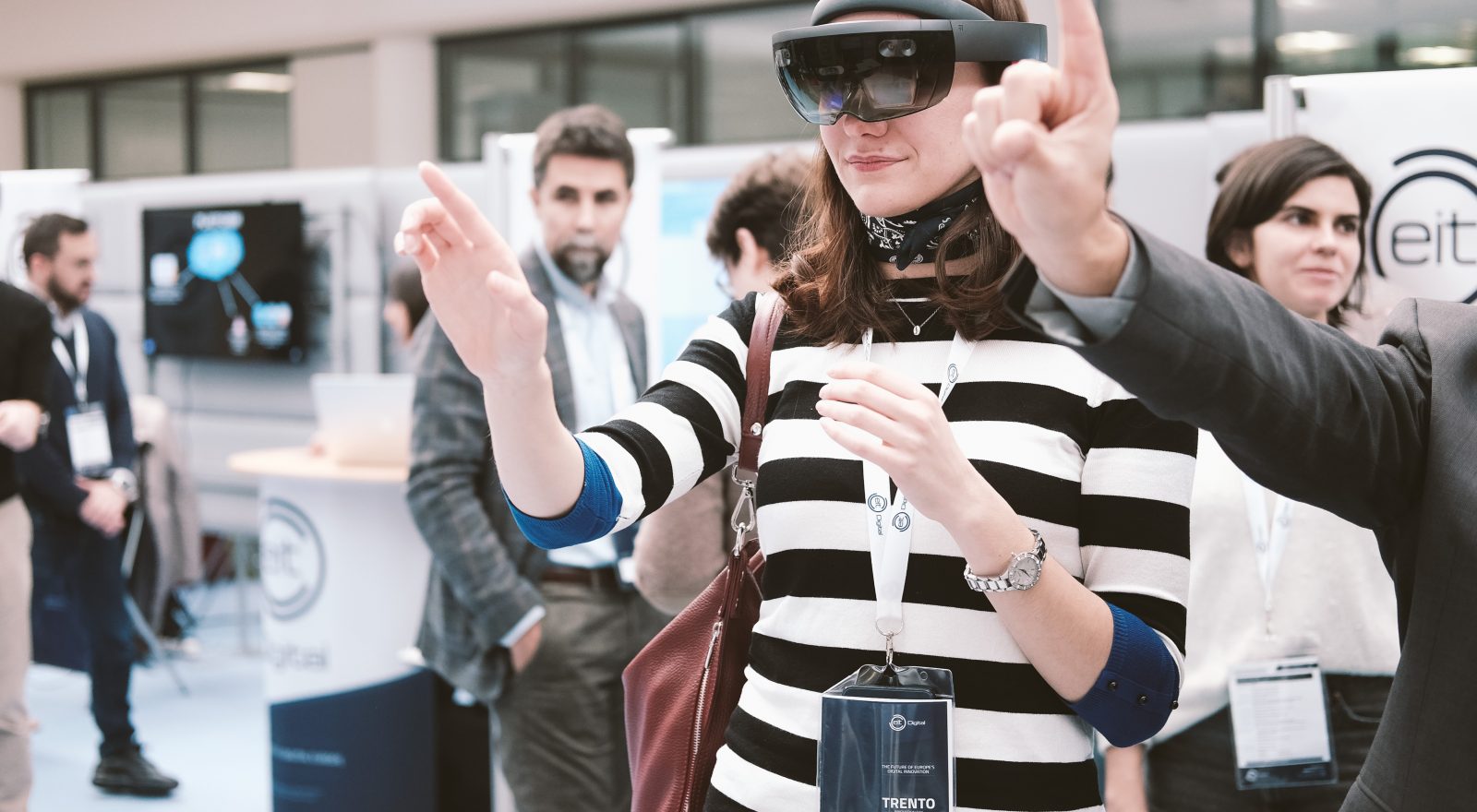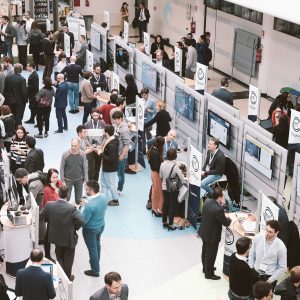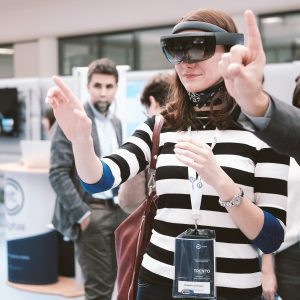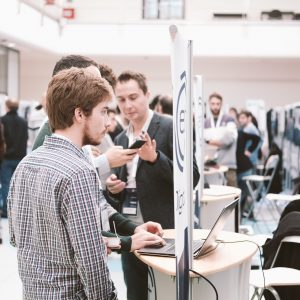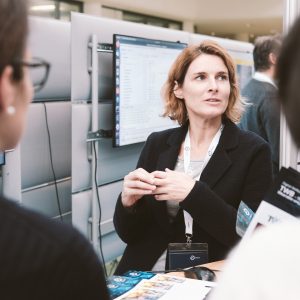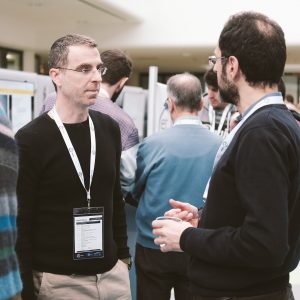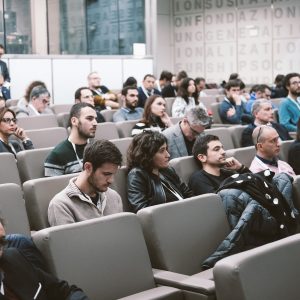FBK research at EIT Digital Italy’s Innovation Day 2019
The Innovation Village featured also digital products and services developed by Fondazione Bruno Kessler for industry, cities, wellbeing and finance
The first of the EIT Innovation Days 2019, an annual event organized by the European network in every “node” that promotes view exchange between experts, entrepreneurs and innovators on the latest trends in digital transformation and on deep tech innovations in Europe was held in Trento, in the EIT Digital Povo venue.
The AI revolution: Hype or Reality? is the title of the 2019 Italian Innovation Day, which dealt with the topic of artificial intelligence – a term that has now become part of everyday language – exploring real business cases and trying to imagine, looking at a not too distant future, the impact that this technology will have in society as a whole and which players will benefit from it most.
Also this year, the event hosted the Innovation Village, an important opportunity to see the innovative solutions developed thanks to the innovation, startup and acceleration activities generated by the EIT Digital ecosystem. The North Building court in the Povo location thus turned into a large demo-session area that hosted the presentation of over forty products and services, divided into five macro-categories: digital tech, digital cities, digital industry, digital wellbeing, digital finance.
In this important showcase, Fondazione Bruno Kessler’s researchers had the chance to present to investors, experts and companies some of the projects and solutions specially developed for industry, cities, wellness, digital finance.
DigiFlow is part of the Digital Industry action line. The application, combining fog computing and IoT, helps companies better understand industrial workflows by improving digitization, monitoring and optimization. Based on a series of sensors installed in the customer’s systems, the various flows are monitored in real-time and the data obtained is processed on a flexible fog computing platform and an indoor location application; they are used to improve process efficiency and to support plant managers in the decision-making process.
Among the projects presented within the Digital Cities section, BRIDGE aims to improve job prospects for migrants and refugees thanks to the development of a digital platform for decision support for public administrations based on Artificial Intelligence technologies able to provide policymakers with information on the formal and non-formal skills and abilities of migrants.
The CREEP (Cyberbullying Effects Prevention) project, in the Digital Wellbeing area, aims to develop advanced artificial intelligence technologies and solutions for the early detection and prevention of the effects of cyberbullying through social media monitoring and the adoption of motivational technologies (chatbot).
Another innovative project in the digital wellbeing action line, in which the Foundation is a non-lead partner, is DMCoach+ an app designed to help patients have a healthier lifestyle in order to prevent different metabolic pathologies, in particular, type 2 diabetes, through personalized coaching, lifestyle monitoring, empowerment and patient engagement, gamification mechanisms.
As far as services are concerned, the Foundation was involved in two projects developed for the digital finance area. They are Credit Risk Mitigation, Teîchos. The former is a fully managed platform that facilitates the matching process between guarantors and SMEs and uses blockchain technologies to reduce costs and improve efficiency. Teîchos (Technical Environment for Intelligent Cyber Operational Security), instead, is a tool that enables the identification of security flaws before financial services are put into production and posted on the Internet.
